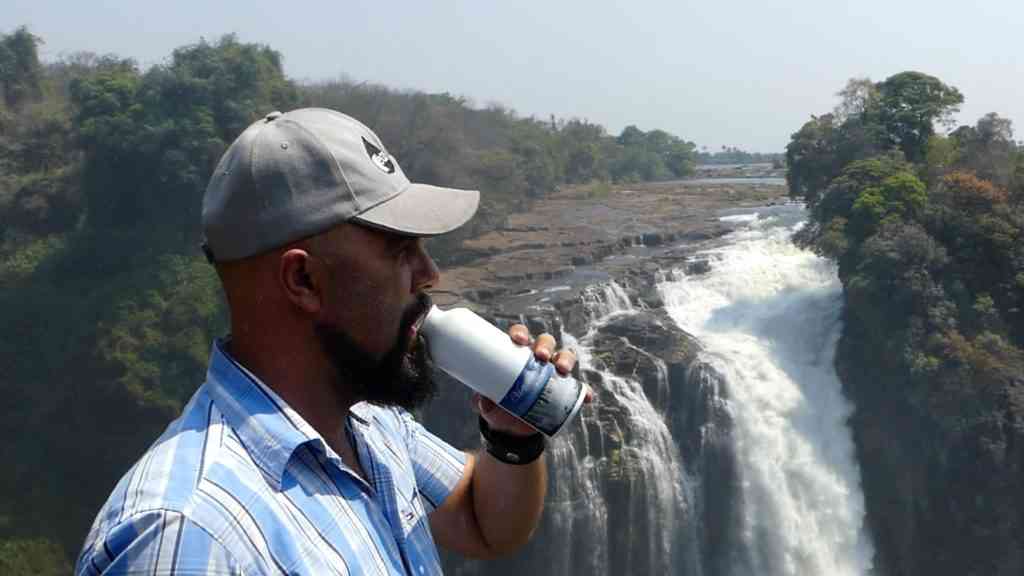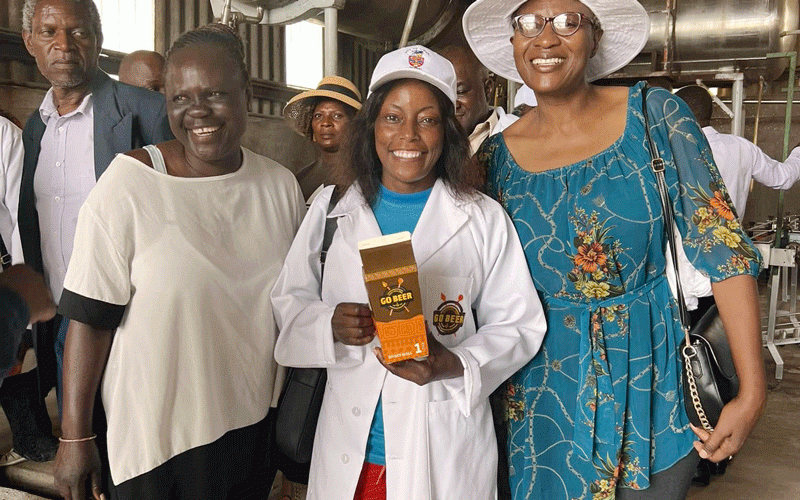
Victoria Falls stands as one of Zimbabwe’s premier tourist destinations, drawing over a million visitors annually and serving as a pillar for the country’s tourism industry.
While this influx benefits the local economy, it’s also resulted in a significant increase in plastic waste, particularly single-use water bottles.
Addressing this challenge, the Victoria Falls-based startup EcoDrop has introduced a practical and sustainable alternative, a reusable aluminium water bottle embedded with QR codes.
Victoria Falls is facing mounting challenges due to a surge in single-use plastic waste, mainly from the vast number of tourists.
The local waste management systems are struggling to keep up and the consequences are already visible.
Wildlife, including elephants, have been found ingesting plastic, leading to fatalities.
Meanwhile, waterways are getting clogged, which not only hampers drainage but also threatens the site’s standing as a Ramsar-listed wetland and a Unesco World Heritage Site.
EcoDrop, a Victoria Falls-based company, is making some smart moves in the sustainable tourism space by launching a durable aluminium water bottle, each one featuring a handy QR code.
- Tarakinyu, Mhandu triumph at Victoria Falls marathon
- Andrea The Vocalist, dreams big
- All set for the 2022 Econet Victoria Falls Marathon
- Econet Victoria Falls Marathon return a boon for tourism
Keep Reading
Tourists and locals can scan the code to pinpoint nearby refill stations, which are conveniently spread throughout the city, including at the airport.
It is a streamlined, cost-effective way to keep everyone hydrated.
Casey Bean, the director of EcoDrop, stated, “Every barcode is specific to where you bought the bottle.
“An average tourist stays about two and a half days in Victoria Falls. In our tests, they refilled 14 to 15 times during that period.
“We offer 30 refills – enough to avoid buying plastic bottles altogether while here.”
Plastic waste in Victoria Falls mirrors a much bigger national concern.
Across Zimbabwe, roughly 300 000 tonnes of plastic are generated each year, making up close to 18 per cent of the country’s total solid waste.
Zooming in on Victoria Falls, both residents and the tourism industry contribute about 3,300 tonnes of solid waste annually, with plastic bottles forming a significant chunk of that total.
Amkela Sidange, the environmental education and publicity manager at the Environmental Management Agency (EMA), highlighted the urgent priority of protecting Uneso sites like Victoria Falls from plastic pollution.
She explained that single-use plastics were persistent as they break down slowly, resulting in microplastics that contaminate both water and soil.
This contamination threatens aquatic life in the Zambezi River and disrupts wetlands by blocking water flow and damaging native plants and animals.
Sidange stressed that maintaining the ecological integrity of Victoria Falls was not just important, it’s essential for the region’s environmental sustainability and global heritage.
She further pointed out that EMA was taking concrete steps to address single-use plastic pollution by rolling out clear policy measures.
They’re actively enforcing the Environmental Management Act, along with the necessary Statutory Instruments, to keep things in check.
That means there are now strict restrictions on making, selling, or even bringing in thin plastics under 30 microns, plus a flat-out ban on polystyrene packaging.
Sidange was optimistic about these changes, believing they’ll genuinely help improve Zimbabwe’s environmental situation. —AL CIRCLE









